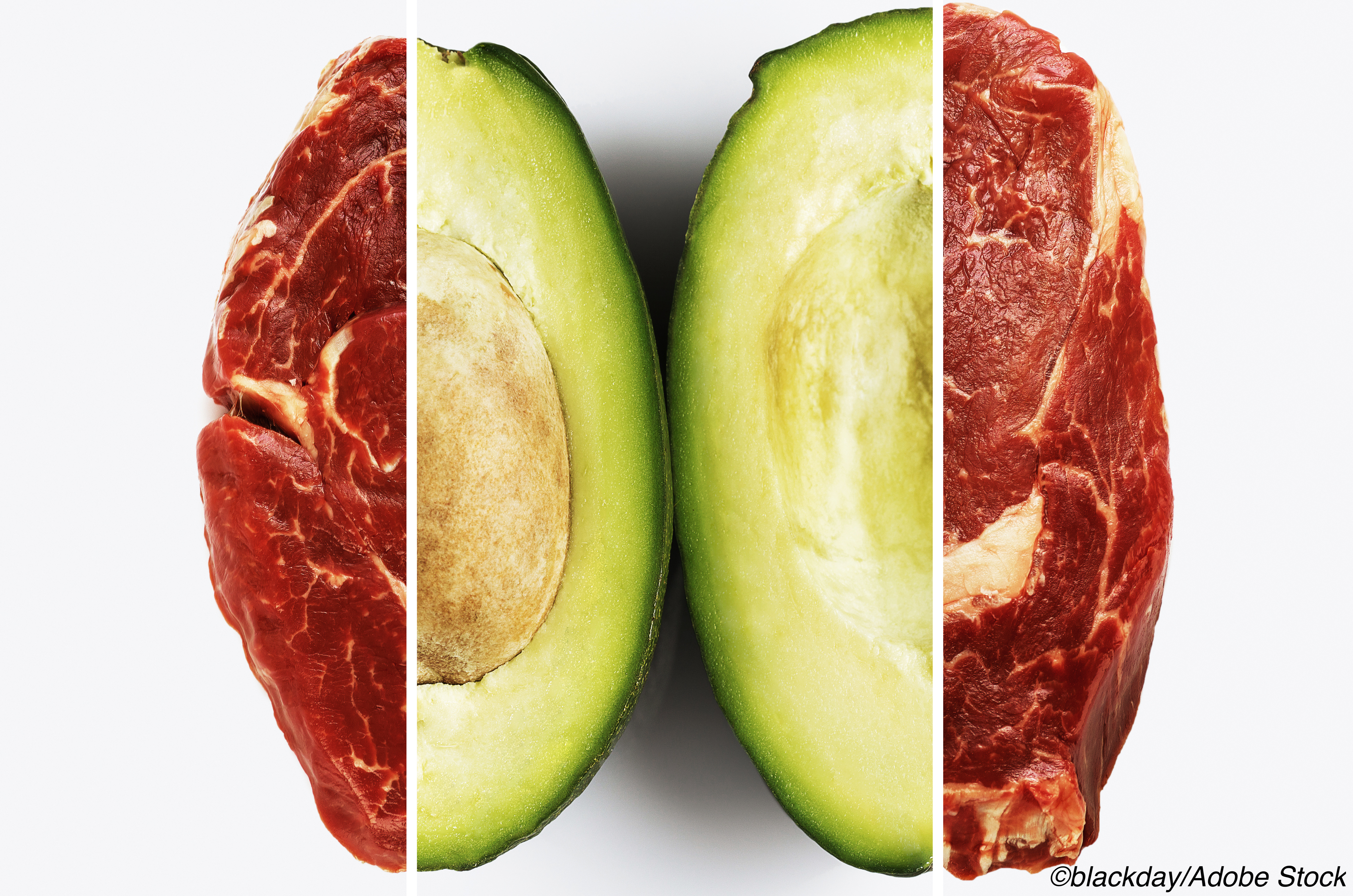Diet quality cannot yet be linked to better survival outcomes in patients with metastatic colorectal cancer, according to results from a prospective study published in JAMA Network Open.
Researchers led by Erin L. Van Blarigan, ScD, of the University of California, San Francisco, did, however, find a trend toward an inverse association between diet quality and risk of death.
“Among people with stage I to III colorectal cancer, a Western dietary pattern, high glycemic load, and sugar-sweetened beverages are associated with higher risk of recurrence and death, whereas long-chain n-3 fatty acids, dark fish, fiber, whole grains, nuts, and coffee are associated with lower risk. No studies have examined diet in relation to survival among individuals with metastatic colorectal cancer,” they wrote.
To assess this, Van Blarigan and colleagues conducted a prospective cohort study, including 1,284 patients with metastatic colorectal cancer (median age: 59 years; median BMI: 27.2; 41% female; 86% Caucasian) enrolled in the Cancer and Leukemia Group B/Southwest Oncology Group 80405 trial from October 27, 2005 to February 29, 2012, with follow-up through January 2018.
All participants completed a food frequency questionnaire within 4 weeks of starting first-line treatment for metastatic colorectal cancer. The questionnaire was based on their food intake during the 3 months preceding treatment initiation.
Patients’ diets were analyzed and categorized according to the validated and commonly used measures of diet quality (the Alternative Healthy Eating Index (AHEI), Alternate Mediterranean Diet (AMED) score, Dietary Approaches to Stop Hypertension (DASH) score), and two dietary patterns (Western and prudent).
Over the mean 73-month follow-up, 1,100 deaths occurred, 89% of which were attributed to colorectal cancer. AMED score and risk of death were inversely associated (HR quintile 5 versus 1: 0.83; 95% CI: 0.67-1.04; P for trend: 0.04), but individual point estimates for each quintile did not reach statistical significance. No other diet scores or patterns were associated with overall survival.
Upon subgroup analysis, Van Blarigan et al observed an association between the Western diet pattern and longer survival in patients with KRAS-variant tumors, but not in those with wild-type tumors. Among patients with KRAS-variant tumors, those who were in the highest quintile for the Western diet had longer survival than those in the lowest quintile (HR: 0.50; 95% CI: 0.32-0.77).
“Patients and clinicians often seek advice on whether diet changes or other modifiable factors can impact outcomes,” the study authors wrote. “Although there are increasing data on modifiable factors, such as exercise and diet, in people with colorectal cancer, there remains a paucity of data to guide patients with advanced and metastatic disease. In a recent study with this same cohort of patients, physical activity was observed to be associated with longer survival. In contrast, the current study did not find an association between overall diet quality and survival. Thus, although data are limited to 1 cohort so far, efforts to help patients adopt and maintain a physical activity routine may be more important than suggesting changes to their overall dietary pattern at the time of initiation of treatment for metastatic colorectal cancer.”
This study is an important first step in unraveling the links between diet quality and outcomes in patients with metastatic colorectal cancer, but further studies are needed, wrote Cindy Kin, MD, of Stanford University School of Medicine, Stanford, California, in an accompanying editorial.
“It is possible that repeated measures of diet in this patient population would have revealed an association between better survival and more healthful diets—similar to studies on diet quality in patients with nonmetastatic colorectal cancer,” wrote Kin.
“More studies are necessary for understanding the associations of diet with outcomes during and after treatment. Answering this question is critical for formulating actionable diet interventions to best support these patients through treatment and to optimize their outcomes,” she concluded.
Limitations of this study include its prospective design, the use of only one baseline measure of diet, possibility of dietary changes due to illness, and the preponderance of Caucasian participants.
-
Quality of diet in patients with metastatic colorectal cancer at first-line treatment initiation was not associated with overall survival at 6 years.
-
Although nonsignificant, an inverse association between the Alternate Mediterranean Diet score and risk of death was seen.
E.C. Meszaros, Contributing Writer, BreakingMED™
This study was supported by the National Cancer Institute (NCI), and in part by Bristol Myers Squibb, Genentech, Pfizer, and Sanofi.
Van Blarigan has received grants from the NCI.
Kin reported no conflicts of interest.
Cat ID: 118
Topic ID: 78,118,118,935,192,94,925



